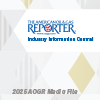
Financial Markets
LIBOR Phase-Out Has Global Implications
By Shane Randolph and Jeff Nicholson
HOUSTON–With more than $370 trillion of global financial contracts referencing the London interbank offered rate (LIBOR), companies around the world are curious about how the planned phase-out of LIBOR by 2021 could impact their organizations. In the oil and gas industry, many companies are beginning to assess what the phase-out means to their businesses, formulate transition plans, and identify what steps can be taken now.
LIBOR has been the default local and international benchmark interest rate for a diverse range of financial products for decades. The rate is based on various banks’ proprietary observations rather than robust market transactions. This has left the rate vulnerable to manipulation, and major rate-fixing scandals came to light starting in 2007. As a result, the U.K.’s Financial Conduct Authority (FCA) decided that it will no longer compel banks to submit LIBOR estimates by the end of 2021.
As a response to the issue in the United States, the U.S. Federal Reserve Board convened the Alternative Reference Rates Committee (ARRC) in 2014 to establish a viable alternative to the U.S. dollar LIBOR. The ARRC determined in 2017 that the overnight indexed swap (OIS) rate based on the secured overnight financing rate (SOFR), a broad treasury repurchase agreement financing rate used when banks borrow or loan treasuries overnight, would be its preferred alternative reference rate. Accordingly, the Fed began publishing the SOFR daily rate on April 3, 2018, to prepare for its use as a benchmark rate.
The current transition timeline proposed by ARRC has SOFR being the primary replacement for LIBOR in the U.S. by year’s end 2021. According to ARRC’s anticipated completion dates, in the first quarter of 2020, central counterparty clearinghouses (CCPs) will begin allowing market participants a choice between clearing new or modified swap contracts (swaps paying floating legs benchmarked to effective federal funds rate (EFFR), LIBOR and SOFR) into the current price alignment interest (PAI)/discounting environment or one that uses SOFR for PAI and discounting. PAI is the overnight cost of funding collateral, which is transferred to the payer to cover the loss of interest that would have otherwise been earned on posted collateral.
In the second quarter of 2021, CCPs will no longer accept new swap contracts for clearing with EFFR as PAI and discounting except for the purpose of closing out or reducing outstanding risk in legacy contracts that use EFFR as PAI and discount rate. Existing contracts using EFFR as PAI and discount rate continue to exist in the same pool, but would roll off over time as they mature or are closed out.
By the end of 2021, a term reference rate based on the SOFR-derivatives market will be created once liquidity has developed sufficiently to produce a robust rate. There are concerns about utilizing SOFR as a benchmark rate, and it will take time for enough liquidity to develop in the SOFR market to alleviate concerns regarding its viability as a benchmark. One issue is that SOFR is a spot rate from the median of overnight transactions, and it is likely to vary materially from day-to-day. Another issue is that SOFR has only a one-day tenor, whereas LIBOR has many different tenors.
Key Considerations
Companies should inventory all agreements that reference LIBOR. Also, when executing new agreements, management should carefully consider language addressing alternative or fallback rates if LIBOR is unable to be determined. If contracts are not amended to include alternative rates or fallback provisions in the absence of LIBOR before the relevant LIBOR index is discontinued, it could cause settlement issues or render contracts invalid.
From an accounting and financial reporting standpoint, the impact could be substantial. The primary areas affected include hedge accounting and accounting for debt modifications. In addition, discount rates for impairment testing, lease accounting, asset retirement obligations and fair value estimates will need to be assessed.
Fortunately, both U.S. and international accounting regulatory bodies–the Financial Accounting Standards Board (FASB) and International Accounting Standards Board (IASB), respectively–appear to be aligned and will provide significant relief for the transition, particularly in the areas of hedge accounting and debt modifications. As of now, the actions by the FASB and IASB are tentative proposals, but additional guidance should be provided by the end of 2019.
In regard to steps that oil and gas companies can take today, at this stage in the LIBOR phase-out process, companies should focus on increasing organizational awareness, carefully monitoring the execution of new agreements referencing LIBOR, and creating an inventory of existing agreements and valuation models.
Increasing organizational awareness will be key for the transition away from LIBOR. While some may be aware of the impending LIBOR replacement, there may be a lack of appreciation of how broadly the event will impact the organization beyond hedging and debt activities. Increasing awareness throughout the organization also will assist in monitoring the execution of new agreements referencing LIBOR.
The replacement of LIBOR will have a significant impact globally. Oil and gas companies are encouraged to consider the impact on their organizations and take steps to assess existing agreements and carefully monitor the execution of new agreements.
SHANE RANDOLPH is managing director at Opportune LLP, where he assists companies and financial institutions throughout North America, South America, Europe and Asia-Pacific in understanding of what is possible as they deal with the challenges of implementing risk management programs and highly technical accounting pronouncements. He oversees the risk management, derivatives, stock-based compensation and complex securities service offerings of Opportune. He advises clients on the entire risk management life cycle, including strategy, execution, compliance, valuation and hedge accounting. He has undergraduate and graduate degrees in accounting from Oklahoma State University.
JEFF NICHOLSON is a senior consultant in the complex securities, hedging and stock-based compensation practice of Opportune LLP. He holds a bachelor’s in business administration and management from the University of Colorado, Boulder, and a graduate degree in finance from the University of Colorado, Denver.
For other great articles about exploration, drilling, completions and production, subscribe to The American Oil & Gas Reporter and bookmark www.aogr.com.














